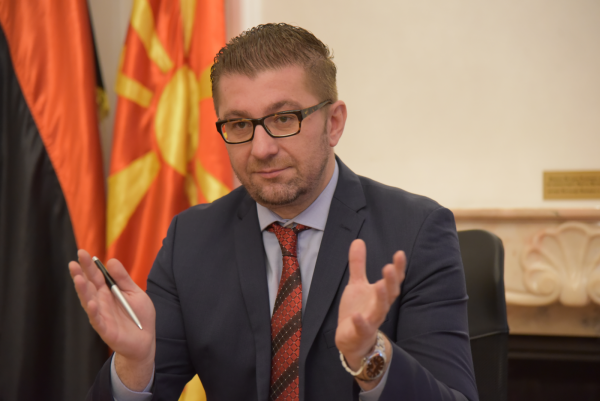Parliament votes in new North Macedonian Government

North Macedonia’s Parliament approved the country’s new right-wing government, led by Hristijan Mickoski, whose nationalist VMRO-DPMNE party won the May general elections. In addition to VMRO-DPMNE, the ruling coalition includes former Albanian opposition parties of the VLEN coalition and the ‘For Our Macedonia’ (ZNAM) party.
Why is this relevant
The new government has declared progress in the EU accession process as a key strategic goal. However, by questioning key agreements with neighboring Bulgaria and Greece, the new government risks stalling North Macedonia’s progress towards the EU.
Context
VMRO-DPMNE had been in opposition since the ousting of former Prime Minister Nikola Gruevski’s government in the 2016 elections over accusations of corruption. The damage caused by Gruevski during his years in power and concerns that the party’s nationalist ideology could harm relations with EU neighbors Greece and Bulgaria, thereby jeopardizing the country’s EU bid, led voters to turn away from VMRO-DPMNE for many years.
However, the Government of the left-wing Social Democratic Union of Macedonia (SDSM) that followed proved unable to deliver on its promises of progress on the country’s EU integration. Despite working hard on reforms and courageously agreeing to painful concessions for the sake of EU integration (such as changing the country’s name to North Macedonia to satisfy Greece and amending its constitution to meet Bulgaria’s demands on constitutional recognition for the Bulgarian minority), it still was not able to open EU accession talks. Frustration with the slow pace of integration and anger at the concessions that the country was forced to make to Greece and Bulgaria, without receiving anything in return, appear to have prompted North Macedonian voters to support the return to power of VMRO-DPMNE.
Predictably, barely a month after its victory, VMRO-DPMNE has already caused tensions with both Greece and Bulgaria by calling for a reinterpretation of the agreements. The country’s new president and newly elected prime minister drew the ire of Greece by referring to their country in public as Macedonia, instead of using the official name of North Macedonia. However, given the experience of the previous leftwing government and the mandate it has received from North Macedonian voters, it is difficult to imagine VMRO-DPMNE having any appetite for further concessions for the sake of EU integration.


